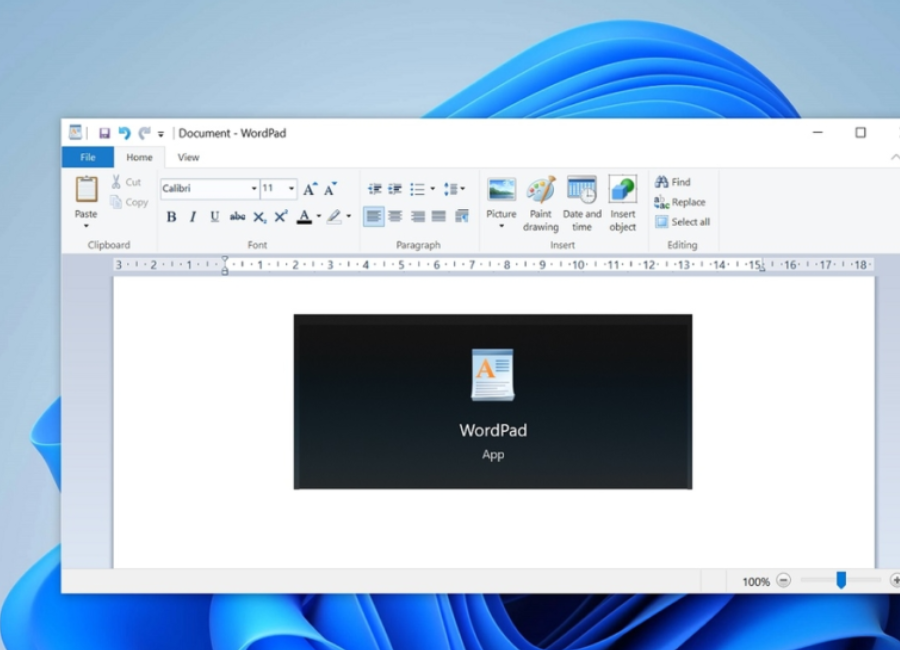The retirement of WordPad by Microsoft signifies the conclusion of an era for long-time Windows users who have relied on this application for decades. In a significant move, Microsoft has opted to remove WordPad from its operating systems, impacting users who have installed the latest Windows 11 Insider Preview build. Notably, WordPad is absent from the apps list, and attempts to reinstall it prove futile.
This decision, outlined in a blog post by the tech giant, encourages users to turn to alternatives for their text editing needs. Microsoft recommends using Word for rich text editing and Notepad for plain text editing in lieu of WordPad. The absence of major updates for WordPad in recent years suggests a deliberate strategy by Microsoft to phase out this long-standing application.

WordPad, a basic word processing program that has been part of the Windows operating system for decades, holds sentimental value for many users who have grown accustomed to its simplicity and functionality. Its retirement prompts reflection on the evolution of Microsoft’s approach to text editing tools.
Over the years, WordPad has served as a middle ground between the minimalistic Notepad and the more feature-rich Microsoft Word. Its user-friendly interface and basic formatting options made it a convenient choice for users who required more than Notepad’s simplicity but found Microsoft Word’s extensive features unnecessary for their needs.
The absence of WordPad from the latest Windows 11 Insider Preview build marks a notable departure from the familiar software landscape for users who have come to rely on this application. Microsoft’s recommendation to use Word and Notepad as alternatives underscores the company’s commitment to providing users with robust text editing options.
Microsoft’s decision to retire WordPad aligns with broader industry trends where software companies regularly assess and streamline their product offerings. In an era of rapidly evolving technology, maintaining and supporting legacy applications can become challenging, especially when users have alternative, more advanced tools at their disposal.
As users adapt to the changing software landscape, the retirement of WordPad prompts considerations about the future direction of Microsoft’s productivity tools. The emphasis on Word and Notepad suggests a strategic focus on catering to diverse user needs while optimizing the efficiency and functionality of text editing applications.
In conclusion, the retirement of WordPad from Microsoft’s operating systems symbolizes the end of an era for Windows users who have relied on this application for decades. While the decision may evoke nostalgia among long-time users, it also reflects Microsoft’s commitment to refining and optimizing its suite of productivity tools. As users transition to alternative applications, the evolving landscape of text editing software continues to shape the digital experiences of Windows users worldwide.







